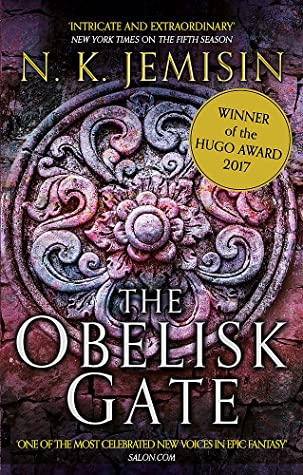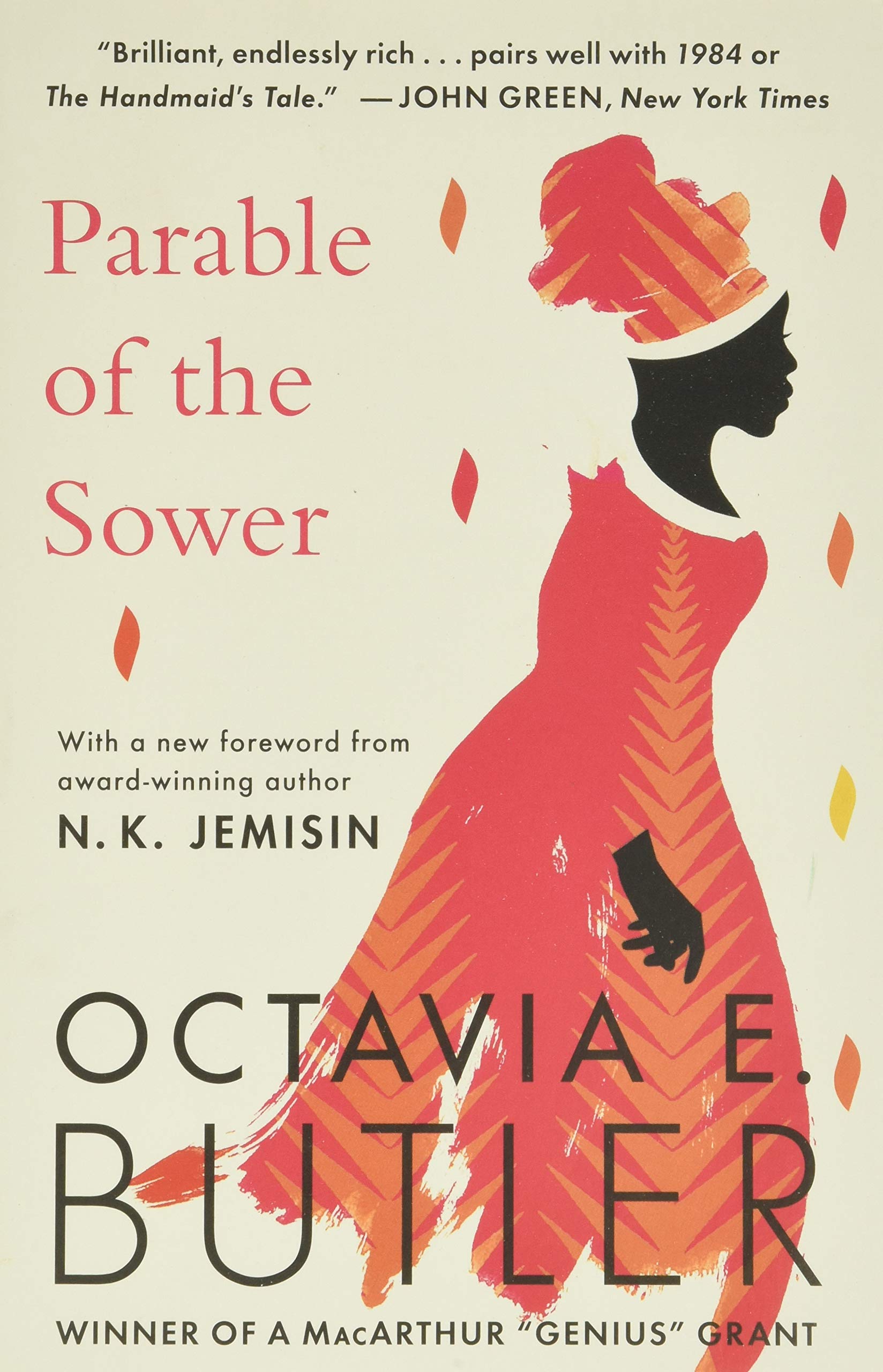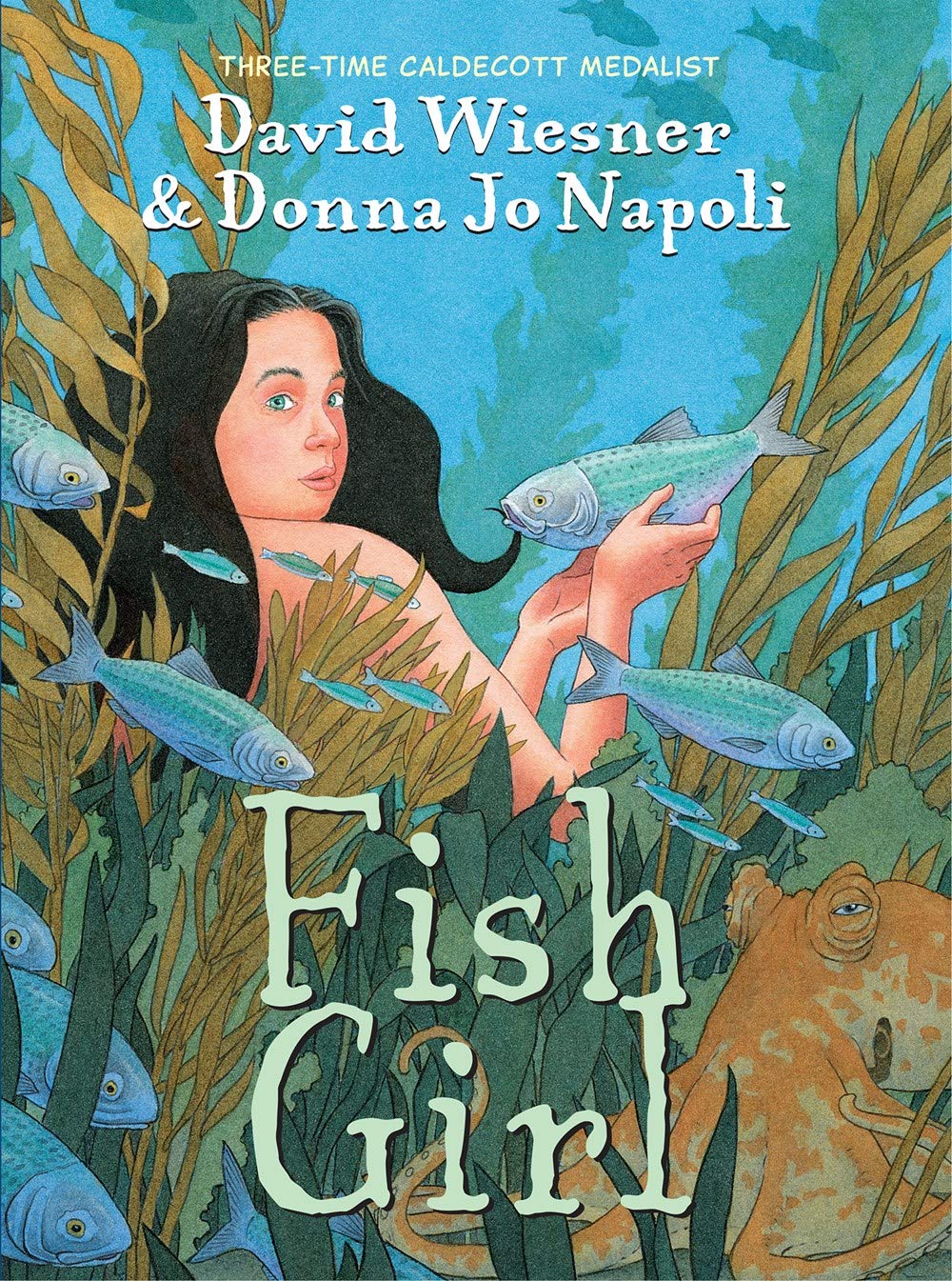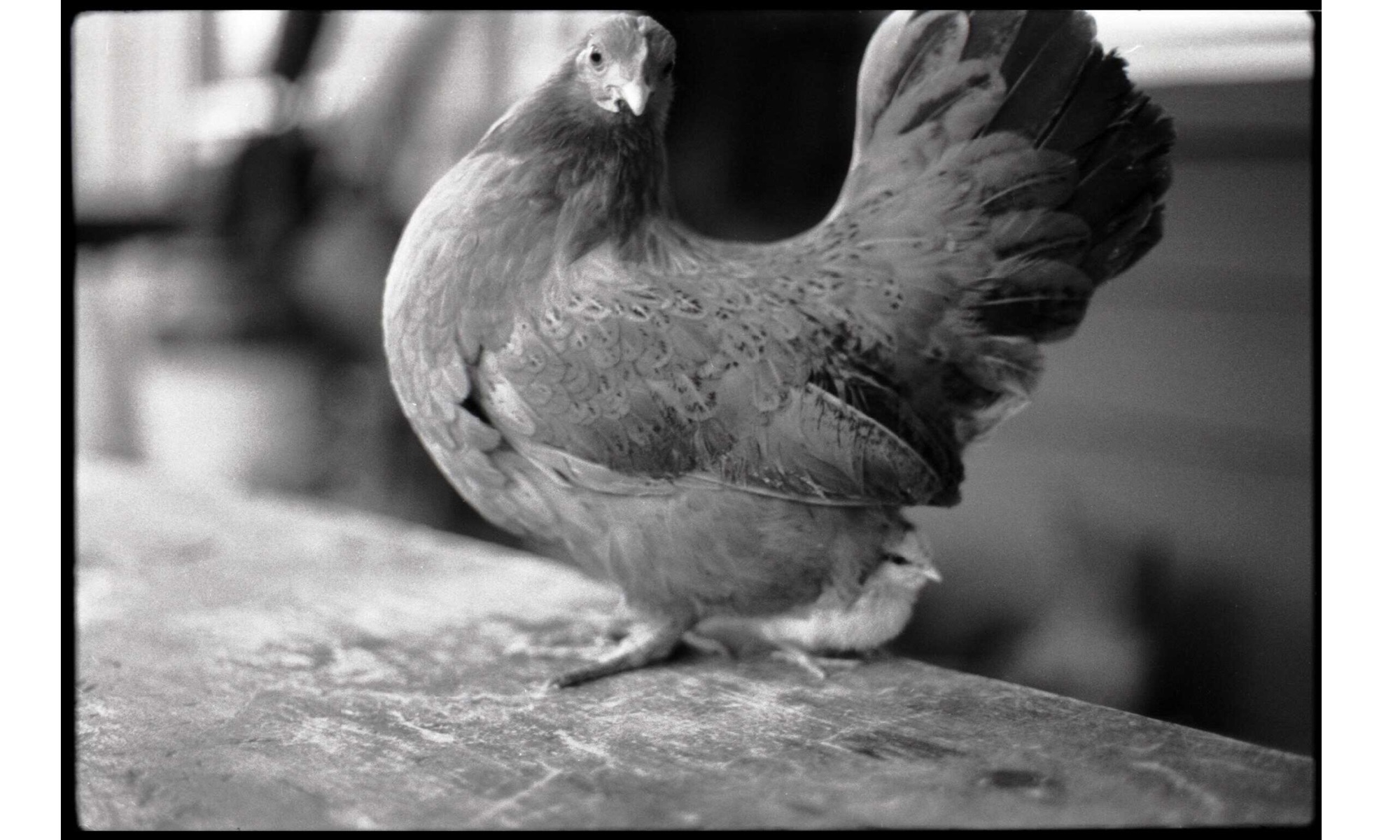Perhaps it’s a little unfair to N. K. Jemisin to rank her #2 behind Octavia Butler’s Parable of the Sower. After all, It’s my second reading of Parable, and The Obelisk Gate is the second installment of a trilogy, which is always a bit of a handicap by not being the beginning or the end of the story. Still, the first part of Jemisin’s trilogy, The Fifth Season was my top book read n 2019 so, she’s doing pretty good here. And honestly, if anyone is going to best her, it may as well be Octavia Butler, whose books inspired Jemisin to be the amazing writer she has become.
 #2 – The Obelisk Gate by N. K. Jemisin
#2 – The Obelisk Gate by N. K. Jemisin
The Obelisk Gate is part two of The Shattered Earth Trilogy, and with uncanny imagination and detailed knowledge, author N.K. Jemisin continues to build a world that is complex, wondrous and unforgiving. The story picks up pretty much where the riveting first part (The Fifth Season) ended: Essun has discovered a hidden underground society, the world’s ecosystem is collapsing because of the actions of her one time teacher and lover, Alabaster Tenring. Essun is still desperate to find her daughter, Nassun, who had been spirited away by her former husband after he had murdered their son. What Essun doesn’t realize is that Nsasun has become involved with Schaffa, the Guardian who almost killed Essun (more than once) in the name of protection.
The storyline is complicated, but that’s what makes it so compelling, along with the strong-willed assortment of fascinating characters that populate this world. With the literal destruction of the planet on the line, and immense power being bandied about by individuals, the stakes are high. And what about the mysterious Stone Eaters? Will they help humanity or destroy it?
Jemisin’s imagination seems boundless, and her writing is top notch. Detailed and emotional, yet infused with an urgency that propels the reader ever onward. Here we are a year later, and I have just started the third and final part of the trilogy. Perhaps we’ll see The Fifth Season on 2021’s list of Best Books Read? I suspect so.
 #1 – The Parable of the Sower by Octavia Butler
#1 – The Parable of the Sower by Octavia Butler
Twenty-seven years after it was first published (and I first read it), but only five years away from the start of the narrative, Octavia Butler’s Parable of the Sower is more prescient and more frightening than ever. In this dystopian future, society as we know it has succumbed to violence, corruption, and the disintegration of community, as the trajectory of the human race advances to its sadly inevitable collapse. Laws are ignored, or enforced by a corrupt and violent police force, and humanity either live in poorly-secured, walled enclaves, tightly-controlled, violent cities where slavery has re-emerged, or riskiest of all, out in the wilderness, where the weak are preyed upon by the desperate.
Lauren is a teenager living in a small, walled community in California. Her father is the local preacher, and her mother teaches the handful of children in the community. Her younger brothers are wild and reckless. Yet Lauren possesses a maturity and wisdom that set her up as different from the start. For one thing, she is a sharer, afflicted with a condition that forces her to feel the pain of others around her if she witnesses them. This can be a disability if she is trying to defend herself from predatory aggressors, but Lauren is prepared. She knows that the time will come when the encroaching dangers will overrun her community and she carefully plans her escape.
Despite the intellectual rejection of religion, even her father’s, Lauren applies her intelligence and her thoughtfulness in the creation of a new religion, one that espouses God as Change, and she calls it Earthseed. When the inevitable happens, and Lauren’s community is overrun, Lauren finds herself fleeing for her life with other refugees – wandering the dangerous, largely abandoned roads to head north, where there is a belief the life might be better. Along the way, Lauren finds other essential decent people among the cast-offs, and all the while, quietly and reasonably shares the philosophy of Earthseed. Can Lauren create a movement that will help set humanity back on a redemptive path? Or will this tiny, emerging movement be crushed by the inevitable crush of chaos.
Now as an adult, with years of life experience, Parable of the Sower resonates with me so much more. Butler’s uncanny way of seeing a possible and plausible outcome of the trajectory of present-day society (even back in the early 90’s) is frightening, as this violent, self-destructive society, where racism, addiction, environmental collapse, corruption and violence have become the norm to the extreme.. There are so few dots to connect to see our own world becoming Lauren’s. Butler’s novel is a classic, and I’m looking forward to rereading the sequel, Parable of the Talents.
 I also want to call out three graphic novels, and one play that I read this year that stood out above the rest. After thoroughly enjoying the network television show, I had to go back and read Greg Rucka Matthew Southworth’s Stumptown, Vol. 1: The Case of the Girl Who Took Her Shampoo and was reminded what a great writer Rucka is. Also thoroughly enjoyed the magical fantasy by David Wiesner and Donna Jo Napoli, Fish Girl. Finally, G. Willow Wilson and Christian Ward’s intricate and fascinating world-building tale, The Invisible Kingdom, Vol. 1: Walking the Path is definitely setting me up for wanting more. The play that most impressed me out of the dozen or so I read in 2020 was one of Ken Urban’s early efforts, published in 2014, The Private Lives of Eskimos. It’s a play I hope to direct when the world settles down a bit, a provocative allegory for grief, isolation, and an overabundance of information.
I also want to call out three graphic novels, and one play that I read this year that stood out above the rest. After thoroughly enjoying the network television show, I had to go back and read Greg Rucka Matthew Southworth’s Stumptown, Vol. 1: The Case of the Girl Who Took Her Shampoo and was reminded what a great writer Rucka is. Also thoroughly enjoyed the magical fantasy by David Wiesner and Donna Jo Napoli, Fish Girl. Finally, G. Willow Wilson and Christian Ward’s intricate and fascinating world-building tale, The Invisible Kingdom, Vol. 1: Walking the Path is definitely setting me up for wanting more. The play that most impressed me out of the dozen or so I read in 2020 was one of Ken Urban’s early efforts, published in 2014, The Private Lives of Eskimos. It’s a play I hope to direct when the world settles down a bit, a provocative allegory for grief, isolation, and an overabundance of information.
Finally two disappointments (only two? that’s not bad…) from the books I read last year. Neal Stephenson’s self-indulgent Fall, or Dodge in Hell, took a fascinating premise, having not only your brain, but essentially your soul, digitized and transferred into a digital world after death, and then wrote about it from every possible angle he could think of until he had filled nearly 900 pages. If Stephenson was a more elegant writer (say, like Patricia A. McKillip) I might have loved this, but unfortunately, it was a bit of a slog to get through, unlike the similarly lengthy The Rise and Fall of D.O.D.O. which I quite enjoyed. Perhaps his co-writer Nicole Galland helped out in that case. The other major disappointment for me was a musical biography by Gordon Deppe, Spoonfed: My Life with the Spoons. Some of you 80’s aficionados may recall the Canadian band the Spoons from their indie-hit, “Nova Heart.” I was a big fan of The Spoons, and Gordon Deppe in particular, but a good musician and songwriter does not a good memoir writer make.
And just to recap, here is the list of the best books I read in 2020.
- Parable of the Sower by Octavia Butler
- The Obelisk Gate by N. K. Jemisin
- Get Tusked: The Inside Story of Fleetwood Mac’s Most Anticipated Album by Ken Caillat & Hernan Rojas
- How Beautiful We Were by Imbolo Mbue
- Perestroika in Paris by Jane Smiley
- Utopia Avenue by David Mitchell
- What Happens at Night by Peter Cameron
- The Long Way to a Small Angry Planet by Becky Chambers
- Blackfish City by Sam J. Miller
- Or What You Will by Jo Walton
- Swimming in the Dark by Tomasz Jedrowski
- Hammered by Elizabeth Bear
